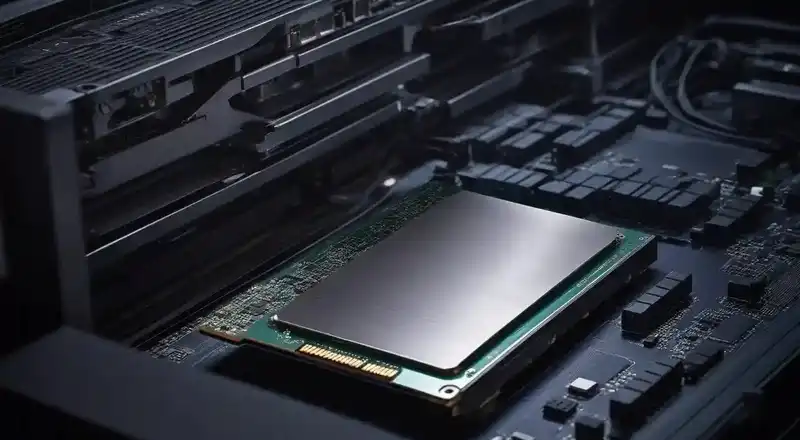Micron, best known for its Crucial SSDs, has announced a new 26GB/s PCIe Gen 6 SSD. Yes, folks, your feeble and outdated 14GB/s Gen 5 drives are yesterday's news (even if PCIe 5.0 is among the best gaming SSDs today). Everyone will soon have Gen 6 SSDs.
Well, that's about it; Micron's drive is not something you can buy next week and build into your PC or laptop. Aside from anything else, your PC or laptop doesn't support PCIe Gen 6 and won't for a while yet.
More to the point, this new PCIe 6.0 drive is intended for high-end servers and AI infrastructure. Micron has not revealed many details about this new drive (via Techspot). The announcement is meant to be an early peak into the Future Memory and Storage conference being held in Santa Clara, California.
In fact, all Micron has stated is that the drive will have sequential read performance in excess of 26GB/s. Existing PCIe Gen 5 drives (such as the Teamgroup Z540) have a theoretical top speed of about 14 GB/sec, but in practice it is less than that. This means that Micron's newborn is almost twice as fast in terms of peak bandwidth.
You would probably need some sort of special megabucks adapter card for your server or AI rack, and the whole thing would cost more than your house. Furthermore, when it comes to actual PC performance, the value of increased raw bandwidth is questionable in any case. Even a prehistoric PCIe Gen 4 drive, with performance of 6GB/s or more, would be enough to load almost any game in a few seconds on paper.
But, of course, that's not possible. Other aspects of performance, such as latency and random access, are just as important, if not more so. In fact, if one were to ask whether what we most expect from next-generation SSDs is a doubling of raw throughput or a doubling of IOPS performance, it would undoubtedly be the latter.
The first generation of PCIe Gen 5 drives was somewhat problematic, requiring active cooling to achieve peak performance, thanks to the Phison E26 controller.
Therefore, we are now very interested to see how drives with the new SiliconMotion SM2508 controller will fare; the SiliconMotion chip is said to consume less power and run cooler than the Phison controller. It is said that the SiliconMotion chip consumes less power and runs cooler than the Phison controller, but is still capable of 14.5 GB/sec read and 14 GB/sec write.
It is also said to double the IOPS performance of previous models. So expect to see full-spec Gen 5 drives with new chips running with passive cooling; Phison also has its own E31T controller, said to be the company's first mainstream controller, but it may sacrifice raw speed for heat
Phison also has its own E31T controller, said to be the company's first mainstream controller, but it may sacrifice raw speed for heat.
Returning to Gen 6 drives, they will probably not actually be available for purchase until next year, with PCs supporting Gen 6 storage technology even further out, at least in 2026 and possibly 2027 or 2028.
Given that few people have Gen 5 drives today, and frankly Gen 5 drives have yet to deliver on the promise of PCI Express interface iterations, it's probably not a problem.


Comments